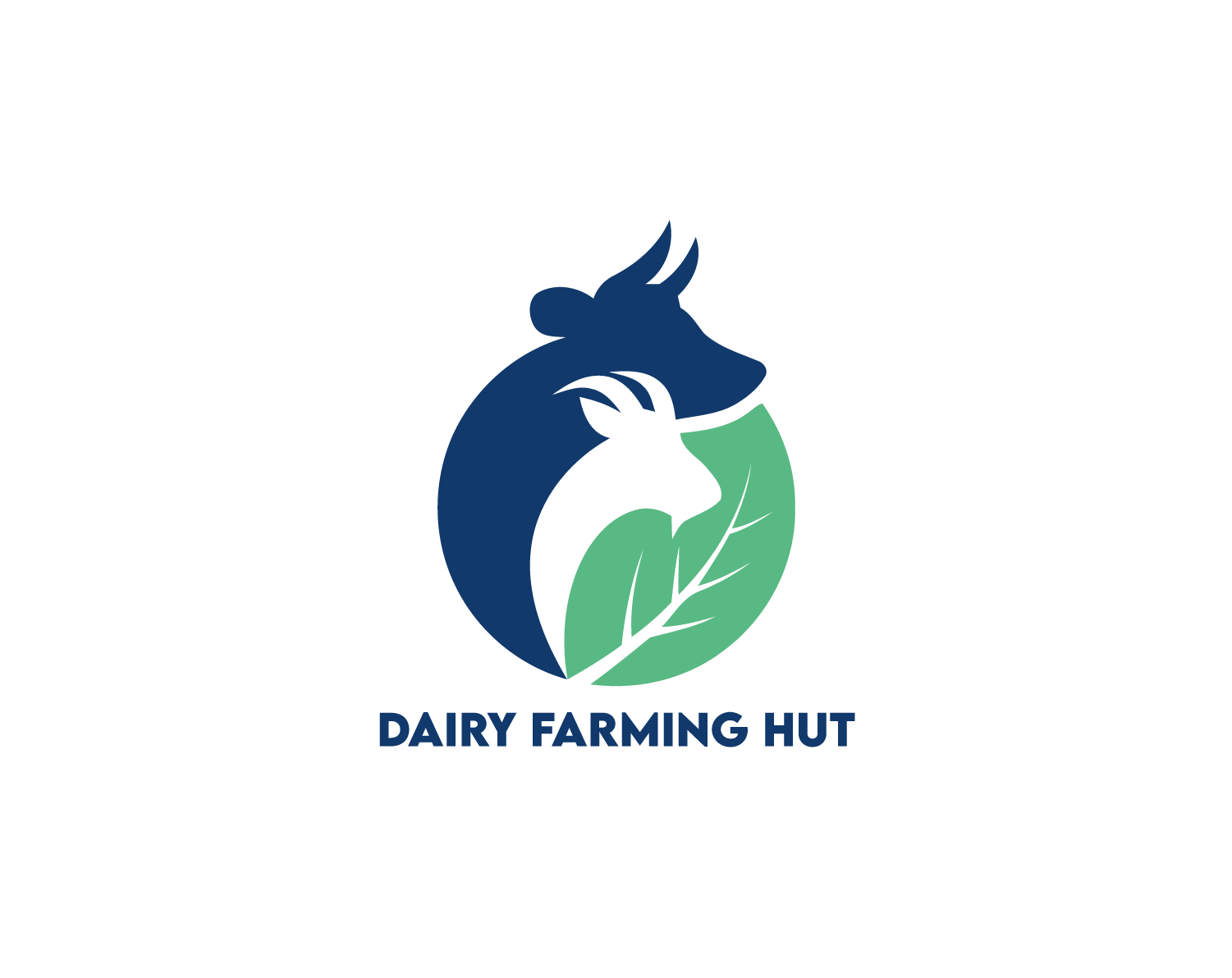Dairy farming is a timeless business that can be both fascinating and lucrative at the same time. Since the beginning of history, people worldwide and in many different cultures have consumed dairy and dairy products, which probably won't change anytime soon.
Over the past few decades, modern technology has improved the efficiency of dairy farming. However, there doesn't seem to be anything that might disrupt the industry to the point of replacing it entirely.
So, whether you plan on starting your own small-scale dairy farm or if you'd like to get your hands dirty and work on one, you can benefit from having some insider information about dairy farming. With the right information, you'll be able to make better decisions as you find your way into the business and expand or work your way up.
To help you with that, we are going to share with you the eight things to know about dairy farming.
1) Dairy Farming Is A Business Like Any Other
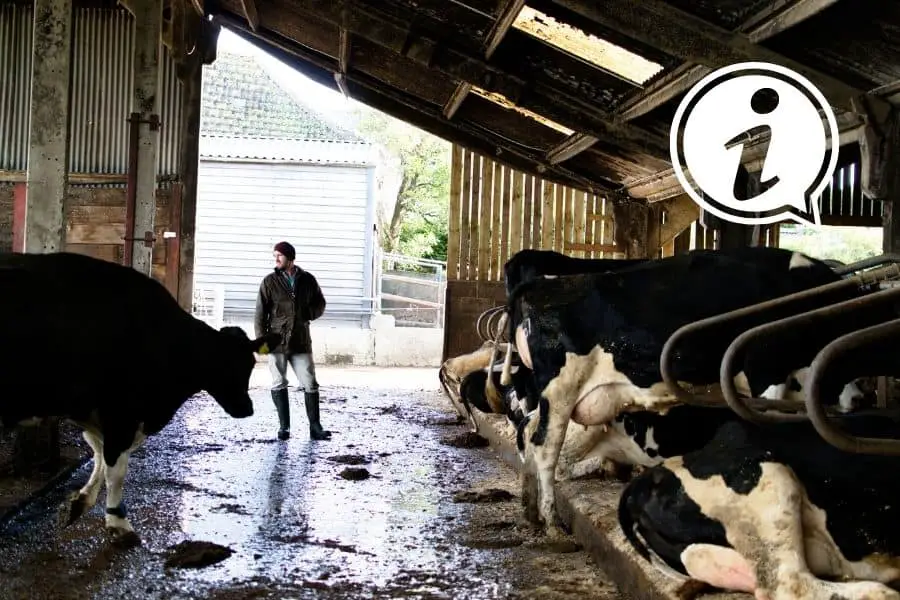
First and foremost, it's important to remember that dairy farming is a business like any other. That means if you decide that you'd like to start your own dairy farm, big or small, you'll need to develop a business plan and get professional advice. You're starting a business, and you must take a business-like approach to it.
What might that mean?
Well, for instance, you can't set up a farm just anywhere. You may be ready and willing to provide the local community with a supply of dairy products. But just the same as if you were to open up a record store, you have to do your research to figure out if there is enough demand for your product to make it worth the effort.
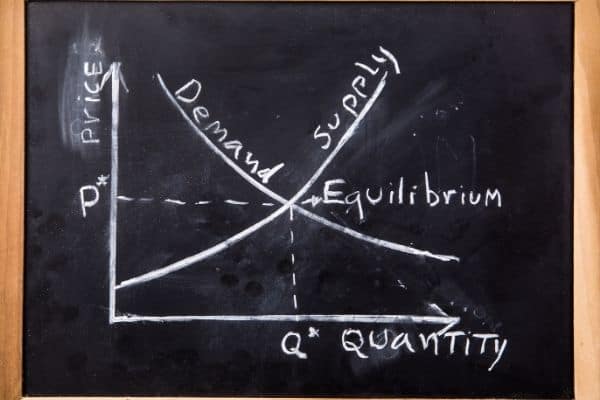
Assuming there is indeed demand, you'll also have to do the math and understand the logistical challenges you'll face. Producing the milk is one thing, but storing it and getting it to where it needs to be are whole other challenges on their own.
Suppose you want to work on a farm instead of starting your own. If that's the case, then you need to remember that this is a business with fluctuating demand. Your job is directly impacted by the so-called 'market forces' that affect the dairy farming industry as a whole.
Remember: none of this is meant to discourage you. It's just a reminder that dairy farming is a business, and the fate of a farm (and the jobs it creates) relies on proper business planning and management.
2) A Dairy Farmer Is A Business Manager
This second part is somewhat related to #1. Seeing as how the dairy farm is a business, that would mean that the dairy farmer is, first and foremost, the manager of that business. So, while feeding and milking cows are certainly fundamental abilities on a farm, a dairy farmer needs to have plenty of other skills as well.
Besides having the ability to operate and maintain mechanical farming equipment and lift heavy loads, farmers must also have or develop their business acumen and 'people skills.'
When it comes to business skills, we're talking about the ability to plan and operate a profitable business (i.e., the dairy farm). Essentially, that means everything we mentioned in the previous section.
Still, a business can't operate with just one hardworking farmer. Even small dairy farms need at least a few employees to work as farmhands. That's where people skills (or their proper name, 'interpersonal skills') come into play.
Dairy farmers need to know how to hire, fire, lead, inspire, and train their farmhands so that they can contribute to the business and make a living of their own.
3) Even Small Dairy Farms Require Equipment
Starting even a small dairy farm requires a significant investment, and not just to buy dairy cattle. Before the cows can even enter the picture, the farm needs to purchase equipment to fulfill the three basic dairy farming needs: to give the cows a comfortable place to stay, feed the cows, and milk them efficiently.
The exact setup may differ between farms, but here's a rough idea of what kind of equipment is necessary for a dairy farm.
For starters, cows need shelter to protect them from the environment. While they're in there, the shelter must also have sufficient ventilation and cooling, especially for the summer months.
To produce milk at the right qualities and volumes needed, the farmer must also feed the cows a nutritious diet. That may require a feed grinder or green fodder cutter to prepare whatever the cows will end up eating.
In this day and age, it's not feasible for a dairy farmer to milk each cow manually. So, they'll need milking machines that can get the job done faster, and they'll need cooling and storage equipment to keep the milk fresh before it's sold off.
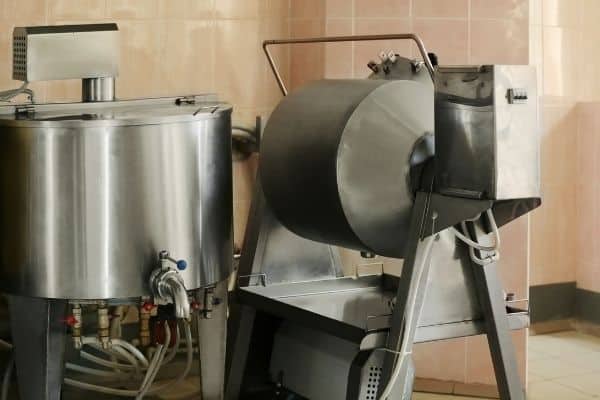
All of the equipment mentioned makes up only the bare minimum of a dairy farm's needs. The bigger the operation, the more high-tech equipment is needed.
You can get an idea about the modern farm by reading this guide.
4) Dairy Farming Is A Critical Part of the Global and Local Economy
Dairy farming is much more than just about producing milk and dairy products. As mentioned in the introduction, the demand for dairy products is timeless and universal.
With the increase in population growth worldwide, demand for protein products like dairy will only rise over time. So, dairy farming shows no signs of going away anytime soon.
To put it in simpler terms, dairy farming is here to stay because it plays a critical role in global trade and food security.
But here's some food for thought: where do you typically find a dairy farm?
That's right!
They're usually located in rural areas far away from cities. That placement allows dairy farms to act as economic powerhouses for those rural communities. Those farms provide job opportunities for locals to make their living and supplies to keep nearby businesses open.
Locals might work as farmhands and other farm support staff, while local markets and restaurants can benefit from a direct supply of items like milk and cheeses from the farm. Beyond that, a dairy farm can also supply other farms with manure to make fertilizer or generate biogas and use surplus cow feed for other farm animals.
Nothing at a dairy farm goes to waste!
The bottom line? Just the same way as milk is nutritious for your body, the dairy farm that produces it is also beneficial to the community.
5) Dairy Farming Has Gone High Tech
There is a surprising amount of cutting-edge technology that goes into dairy farming these days. Farmers are discovering the benefits of useful farming tech, and an increasing number of farms are adopting them into their daily operations.
Take, for instance, electronic cow trackers. One of the challenges of a dairy farm is keeping track of each cow in the herd and being able to tell one apart from the other. That's because specific cows may have unique health issues or other challenges that require personal attention.
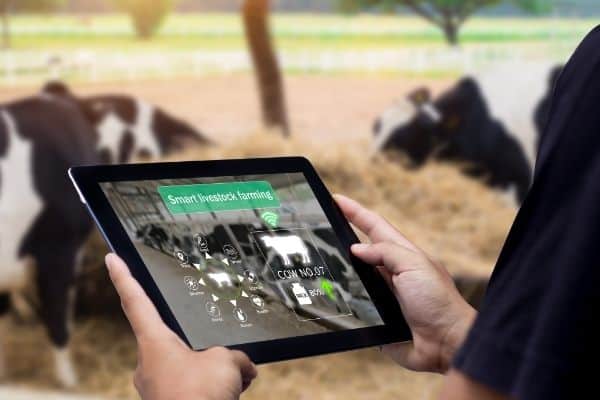
Delivering that attention is much easier to do when farmers can track and identify each dairy cow at any time they need to.
Besides that, other farm activities like cow feeding are also benefiting from high-tech automation. These days, there are plenty of robotic or automated systems that a farmer can invest in to make their operations much more efficient than ever before.
6) Waste Management Is Critical To The Entire Operation
Of all the things to know about dairy farming, here's a fun dairy farming fact: each dairy cow can produce as much as 80 pounds of manure each day. That's 80 pounds per cow, multiplied by the number of cows the dairy farm owns.
At that rate, it won't take long before the farm is overrun with manure everywhere!
Here's one part of dairy farming that most people tend to overlook: waste management. The dairy farm must have a plan and processes to clear, store, and process all of the manure that their cows produce. Whether it's disposed of or turned into fertilizer, cow manure cannot be left wherever the cows drop them.
Still, having a waste management plan in place isn't just about keeping the farm as clean as it can be. It's also a health and environmental issue.

Compost Bin
For instance, a lack of an effective waste management program can result in cows falling sick to disease. If that happens to just one cow, it won't take long for that sickness to spread, thereby jeopardizing the entire herd.
Dairy farmers cannot afford to let this happen, showing just how important waste management is to the operation. Besides that, farms can also generate additional revenue by selling off their manure as fertilizer!
6) Dairy Farms Need Security Too
Believe it or not, security is a significant concern on a dairy farm as well. After all, there are plenty of valuable assets on a dairy farm that must be protected, from dairy cows to expensive equipment that can cost thousands upon thousands of dollars each.
Generally, you can divide dairy farm security into four key areas:
Remember what was said earlier in #1: dairy farming is a business like any other. That means employees must go through required background checks, visitors should be registered, and the premises should be monitored by a guard or security cameras.
At first glance, that might sound a little excessive. But those security measures will start to make a lot of sense when you consider what could go wrong on a dairy farm.
Firstly, there are obvious security issues like theft and damage that dairy farmers should protect themselves against. Even the cows aren't cheap, so you don't want someone hauling them away in the middle of the night!
Beyond that, there's also a need to protect against 'biosecurity' problems, which refers to anything related to the cows and the milk that they produce. To protect the herd, any new cows should be tested and treated before the farmer buys them.
As for the milk, well, it's important to ensure that no one can accidentally or deliberately compromise the milk or any dairy products coming off the farm.
8) Dairy Farming Is Very Different From Beef Farming
Here's the reality that you probably didn't know: dairy farming and beef farming are two completely different types of operations. From the outside, it's easy to assume that they're both generally the same, albeit with minor differences. Even the farm buildings and facilities might look the same from afar.
But of course, that's not the case.
For starters, the way that a dairy farmer and a beef farmer may choose which breeds to keep on their farms is completely different from one another. As mentioned previously, dairy farmers choose their breeds based on the qualities in the milk they produce, such as protein and fat content. On the other hand, Beef Cattle breeds are chosen based on the meat quality that they produce.
Both types of farmers care for their cows in similar ways, with proper shelters and good living conditions. However, beef cattle may spend more time out in the open fields grazing, unlike dairy cattle that are usually given feed to eat inside their shelters. For the most part, that's because being grass-fed improves the quality of the produced meat.
Lastly, dairy farms and beef farms require different sets of equipment. While dairy farms require milking machines and milk storage facilities, beef farms will require slaughtering and meat processing equipment.
Both types of farming require a significant investment to house, feed, and either milk or slaughter their cows.
Final Thoughts
Hopefully, by now, it's clear for you to see that dairy farming is a timeless industry that will probably keep going for generations to come. Technology may have changed the way people run dairy farms, especially in terms of efficiency. But that same disruptive technology also allows farmers to provide much better care and security for their dairy cows, equipment, and farm as a whole.
Still, dairy farming isn't just about housing, feeding, and milking the various dairy cow breeds. The business also involves providing security and waste management for these majestic creatures to ensure that they are protected against threats, either human threats or biological threats that may affect their overall wellbeing.
